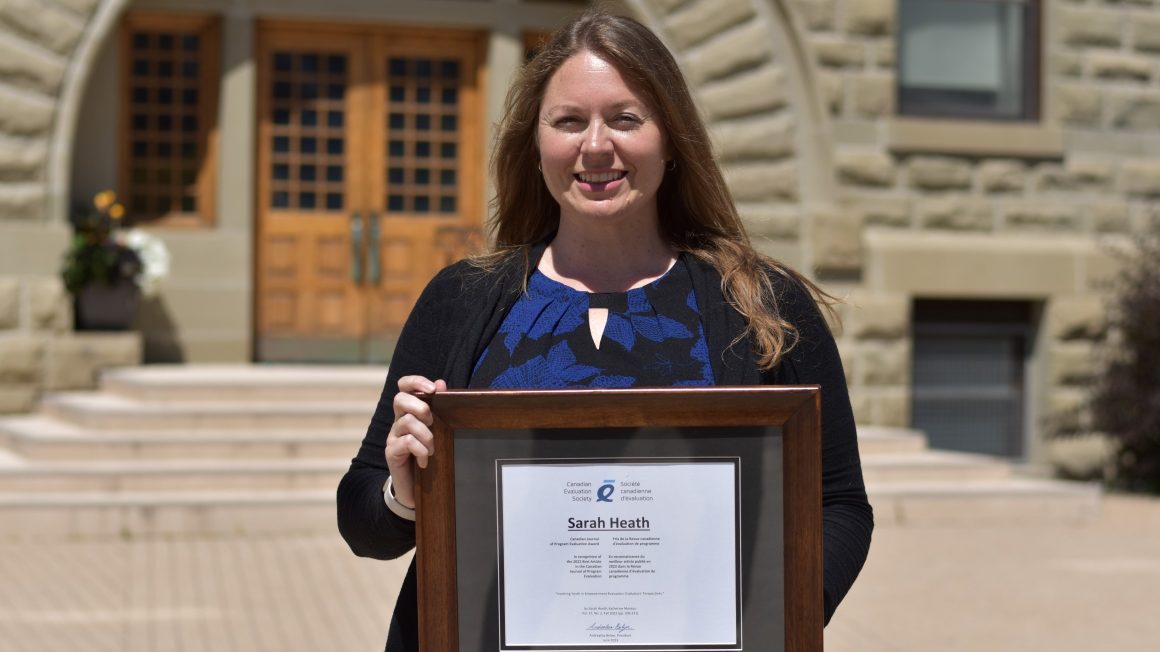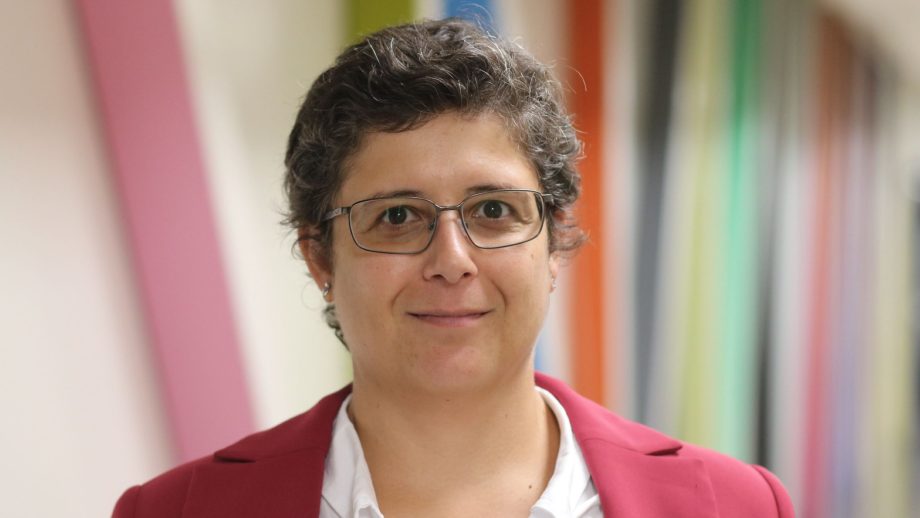Youth are our future and The University of Winnipeg’s Dr. Sarah Heath is examining how to engage them in program evaluation activities.
Collaborative approaches to evaluation seek to include program stakeholders, including program participants, in the design and implementation of a program evaluation.
This insight, followed up with research, recently earned Dr. Heath the Best Article of the Year Award from the Canadian Journal of Program Evaluation for her article entitled, “Involving Youth in Empowerment Evaluation: Evaluators’ Perspectives.”
Youth are often participants in programs, but often not included in the program evaluation.
Dr. Sarah Heath
The article is based on Dr. Heath’s doctoral research and is co-authored by her thesis supervisor, Dr. Katherine Moreau in the Faculty of Education at the University of Ottawa.
The article chronicles the perspectives of evaluators involving young people in empowerment evaluation, which is a type of collaborative approach to program evaluation. As part of a larger mixed methods study, the article reports data collected through surveys and interviews with evaluators.
“In order to accurately evaluate a program where youth are the core participant, we thought it was so important to talk to evaluators through surveys and interviews to find out if evaluators are involving young people in empowerment evaluations,” said Dr. Heath.
In her review of collaborative program evaluations of youth programs, Dr. Heath realized many youths participate in programs (social service programs, educational outreach programs, cultural programs, etc.) but researchers have little to no empirical published examples of youth being involved in specific collaborative approaches, like empowerment evaluation, in meaningful ways.
By helping to address this deficit, Dr. Heath hopes to provide information that could help researchers and evaluators work alongside young people to improve programs and services and better assist the young people those programs are designed to serve.
“Youth are often participants in programs, but often not included in the program evaluation,” said Dr. Heath. “In theory, empowerment evaluation could offer evaluators a strategy for engaging young people in designing, implementing, and reporting evaluations in meaningful ways to improve better results from the programs.”
As an Instructor in UWinnipeg’s Criminal Justice department, Dr. Heath engages in evaluation work with community-based organizations, teaches a course on Program & Policy Evaluation (CJ-4116), and is continuing to carry out research on collaborative approaches to program evaluation.
Her award-winning article was selected through an editorial process that involved the journal’s editorial board recommending up to five articles for review based on their potential impact, originality, breadth, accessibility, and technical rigour.





